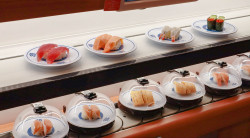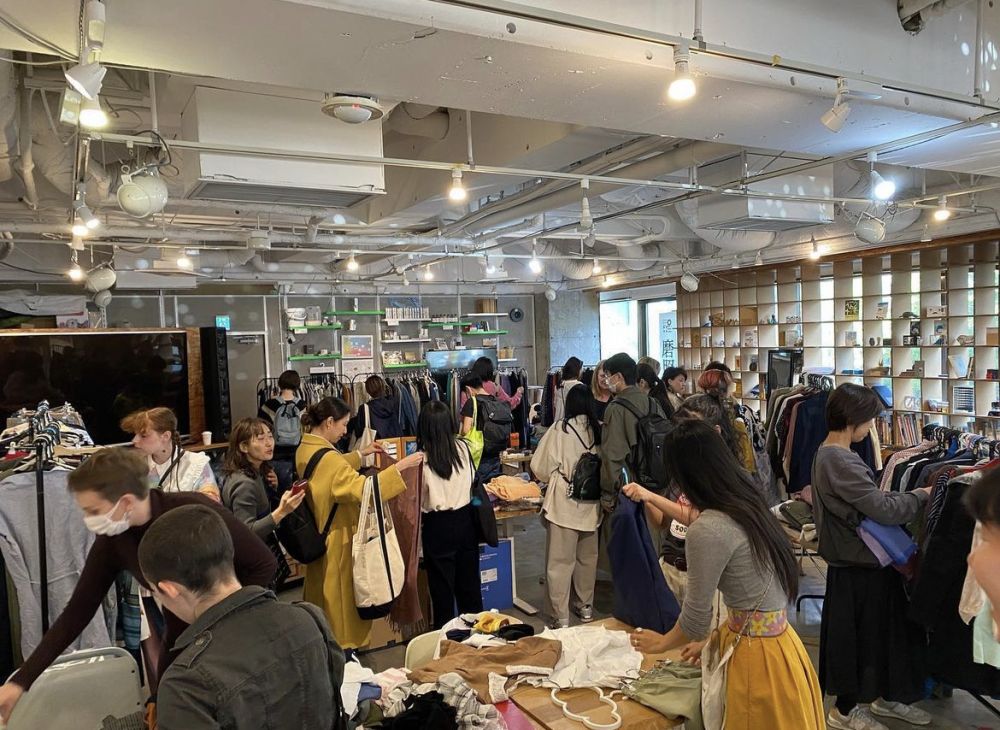
April 4, 2024
Based in Japan: Homage Tokyo’s Fashion Swaps
Weaving an international community through clothing
By Sharnie Fenn
The textile industry is one of the largest contributors to global pollution. Nearly 1.7 million tons of fibre products are discarded in Japan, and the large majority of this is clothing. According to the Ministry of the Environment, a whopping 66% of clothing discarded in Japan heads to incineration plants and landfill sites, while only 34% is recycled or reused.
Homage Tokyo’s mission is to address this significant environmental challenge. The organization focuses on promoting fashion sustainability by extending the life of garments through Tokyo-based clothing swaps. The group is made up of a diverse range of nationalities and members, and its goals include promoting recycling, increasing accessibility, and fostering community bonds through fabric.
We speak with the organization’s founder, Pradi Hargianto, and planner Alli Cottrell, to learn more about this environmentally-minded, modern-day treasure hunt.
Metropolis: Have you always been interested in fashion sustainability?
Pradi Hargianto: Since I was a student in 2016, I’ve been volunteering with Tokyo River Friends to clean up rivers in Tokyo. I have also always liked thrifting. While it’s more of a hobby now, thrifting was a necessity when I was a student because I was not earning a full-time salary.
Alli Cottrell: I grew up in a small community in Wisconsin, United States. My family was into self-sustainability, and my parents had a hobby farm with a fruit orchard, vegetable farm, goats to produce milk and chickens for eggs. As I got older, this evolved into an interest in recycling. As for fashion, I became interested in it during college, where it became a mode of self-expression for me.
M: What is Homage Tokyo? Why did you decide to start it?
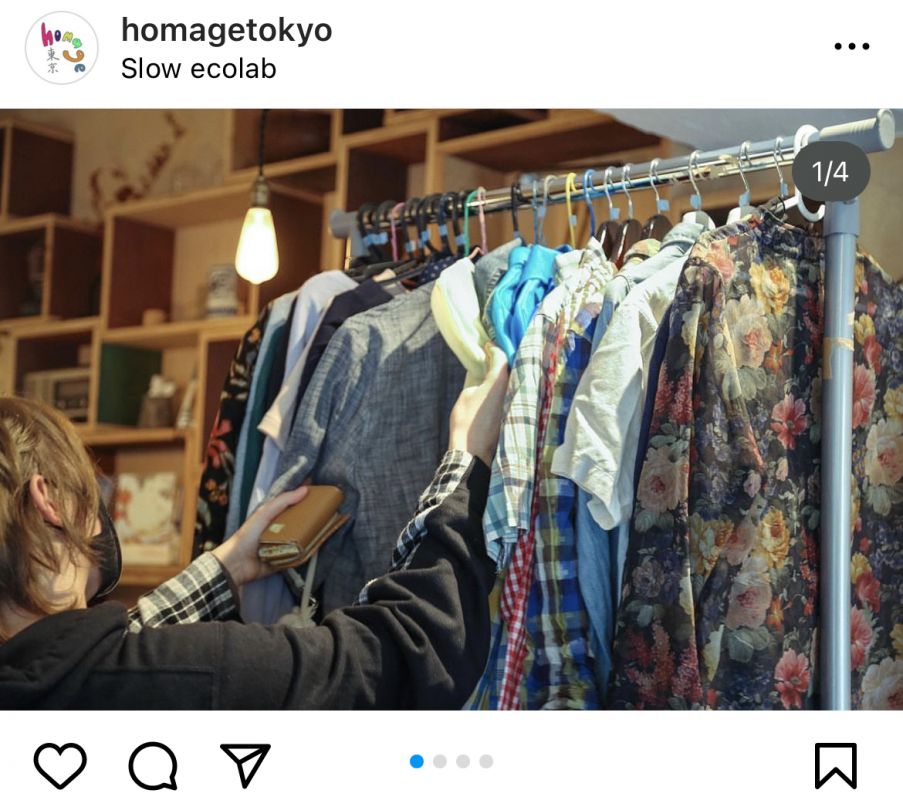
PH: When I shared my interests in fashion and sustainability with a friend, I discovered that she shared the same passions and volunteered in beach clean-ups. Together, we wanted to create something to help communities through fashion. An event that was affordable, community-centered and catered towards individuals who need it – like working mothers, single parents, immigrants and students. We wanted to create events that were immersive by holding workshops that teach people how to sew, fix clothes and remake things so they can be used for a longer time. We founded Homage Tokyo in 2021, and although she has since moved out of Tokyo, I have continued events with the help of volunteers.
(Interested in sustainability? Click here to read about Edo Period Sustainability)
M: What are the clothing swap events like?
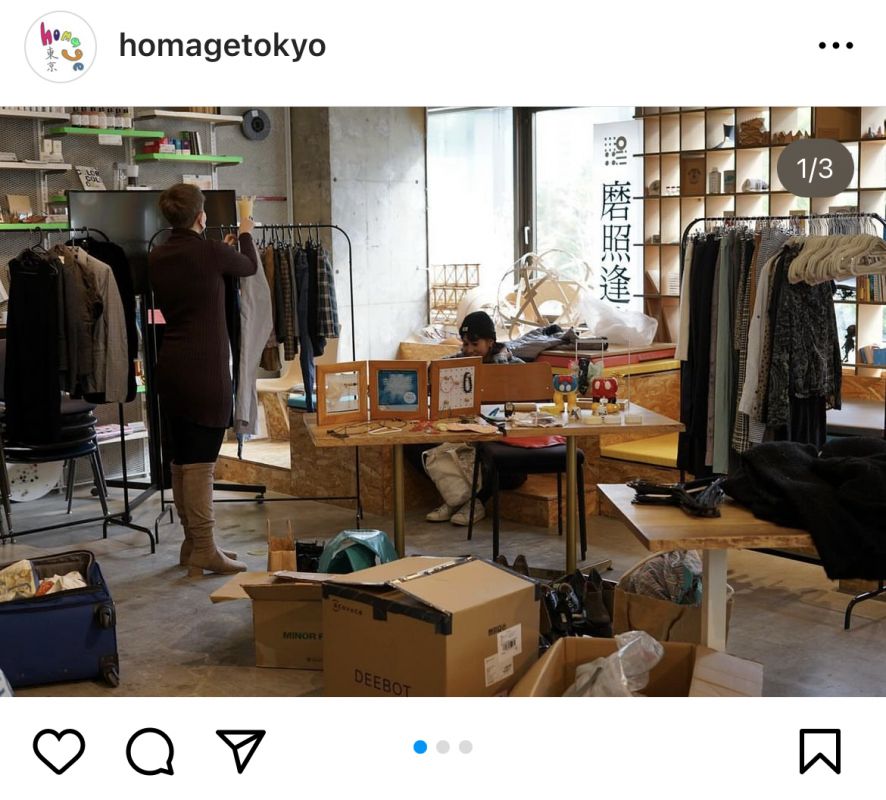
AC: Clothing swaps are usually held at cafes. In the past, we have held our swaps at eco-friendly cafes like Fab Cafe in Shibuya and Alishan Park in Yoyogi. There is a ¥500 participation fee, and you don’t have to donate any clothing to participate. If people do bring clothing for donation, we do a quality check and make sure there are no tears or stains. If they’re accepted, they go on a rack ready for a new home. Participants can take as many clothes from the racks as they want, even if they don’t donate anything. At the end of the swap, excess clothes are donated to charities like cat shelters and non-profit organizations across Tokyo. Last year, we held a “Spectacular Swap Event” in collaboration with other groups. It was our largest ever, with over 150 participants.
M: What is your favorite thing about clothing swaps?
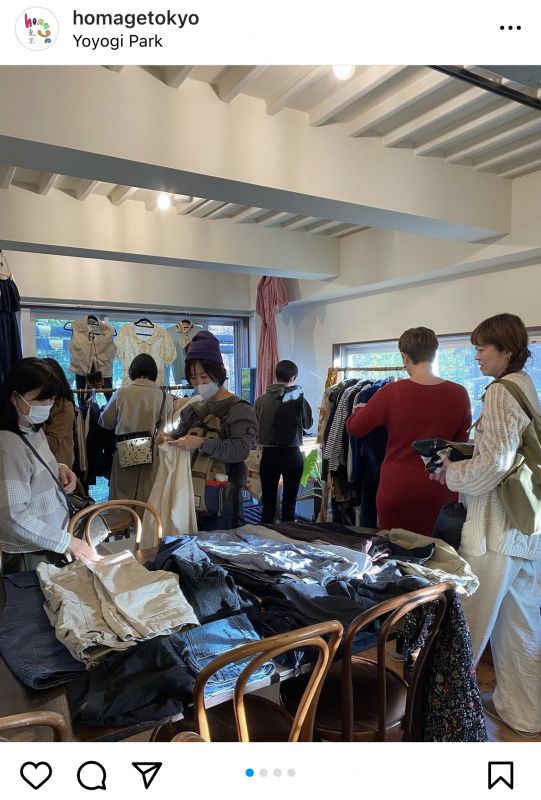
PH: There is so much value in clothing swaps. It helps a lot of people, and I like the community aspect. I also love watching the sense of satisfaction people get when their donations are loved by someone else. Typically, everything we buy is curated. For example, we buy according to what color is trending, or what style is popular, for that season. It’s curated by other people. But when you go to clothing swaps, you’re not defined by what is in trend, and you can get anything you want.
AC: My favorite thing about the clothing swap is when I see people connecting through clothes, sharing fond memories of the items, and watching a community form.
M: What are your hopes for Homage Tokyo?
PH: I would love to make Homage Tokyo an official organization and collaborate more with grassroots organizations. I’d like to collaborate with independent designers and remake artists, and start an original clothing line that is made 100% locally, and entirely from secondhand clothing.
AC: I would love to have more members of the LGBTQ+ community participate and discover the joys of expression through fashion.
To volunteer, please send a message on Instagram to @homagetokyo. Events are held throughout the year; check Instagram for the latest details.





